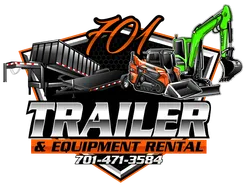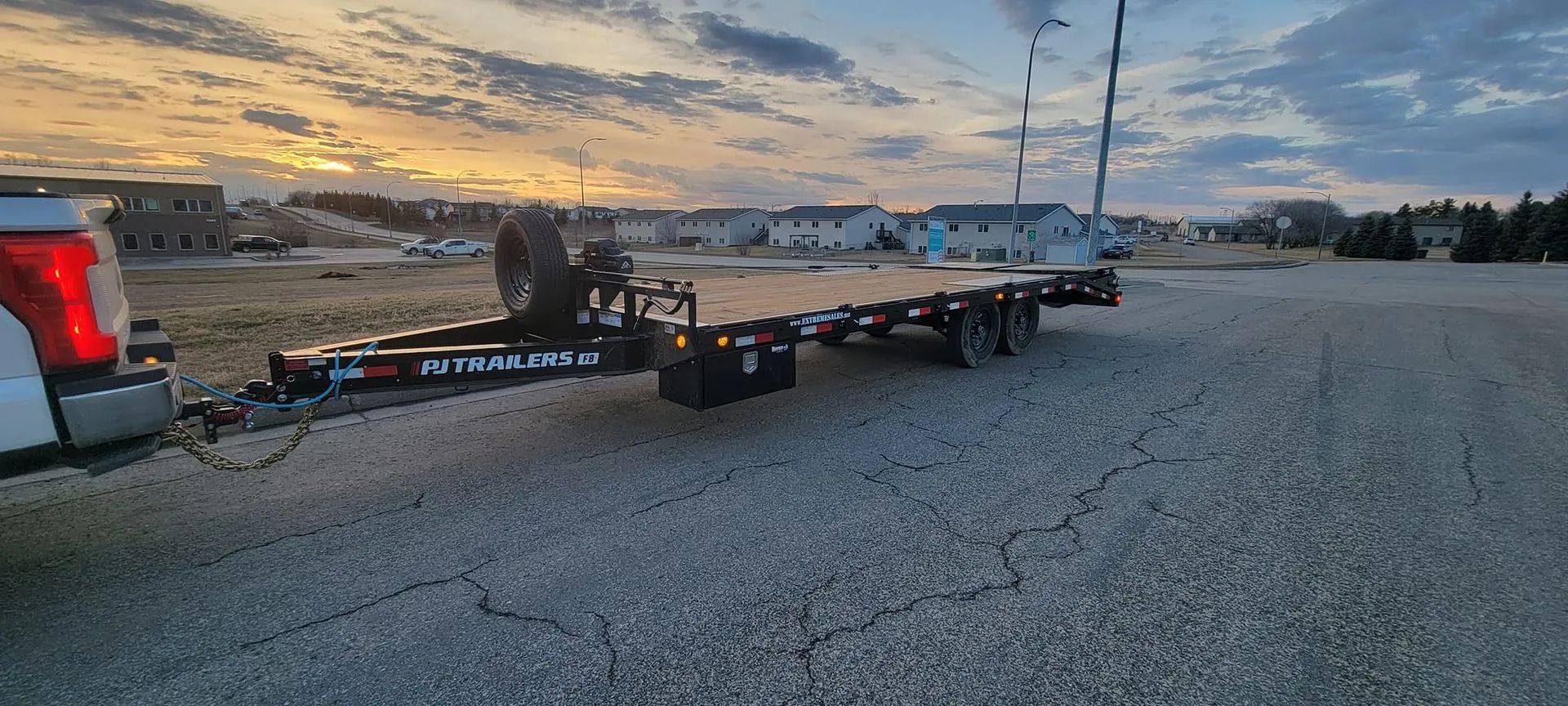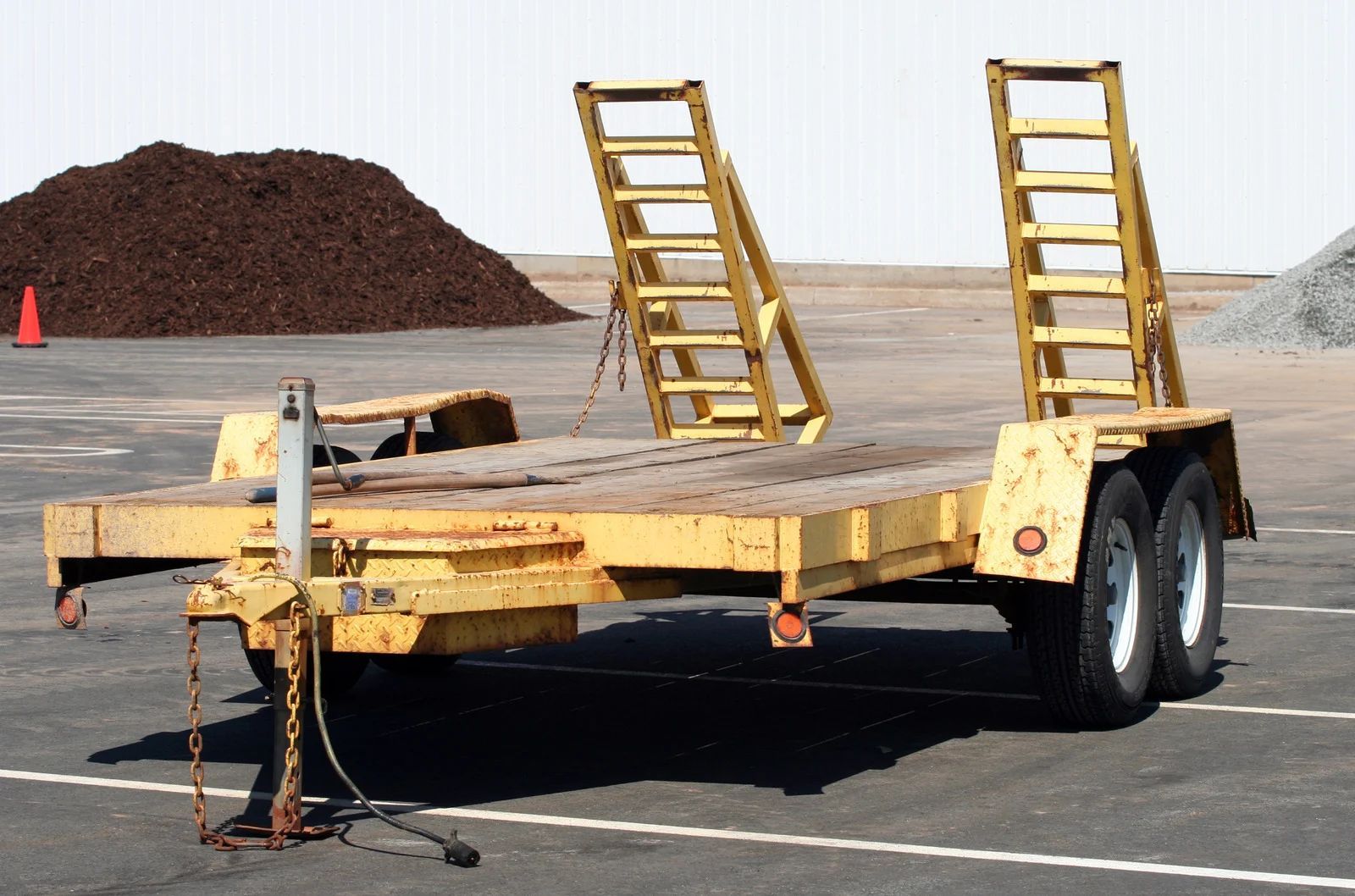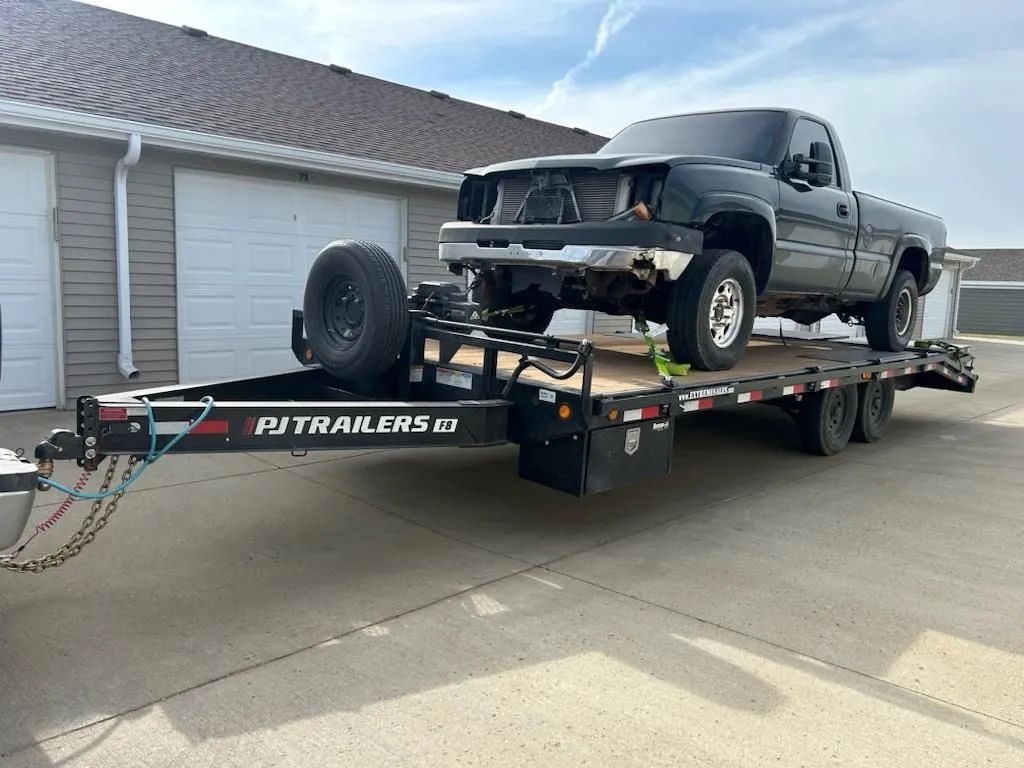Essential Tips for Safely Towing Heavy Equipment
September 13, 2025
Towing heavy equipment is no small task. Whether you're moving construction machinery, landscaping tools, or farm gear, safety and proper preparation are critical to avoid accidents, damage, and delays. From selecting the right trailer to mastering the road, here are essential tips for safely towing heavy equipment that every operator should know.
1. Choose the Right Trailer and Towing Vehicle
Before anything else, make sure your towing setup is matched correctly. Your trailer must be rated to handle the equipment’s total weight, including attachments and fuel. Equally important, your tow vehicle must have the towing capacity and hitch setup to pull the load safely. Mismatched equipment increases the risk of mechanical failure, brake issues, or loss of control on the road. Use equipment trailers with reinforced ramps and high-weight ratings, and check tongue weight distribution to ensure even loading. A properly matched rig is the foundation of a safe tow.
2. Secure the Load Correctly
Improperly secured equipment is one of the leading causes of trailer accidents. Use heavy-duty chains, ratchet straps, and tie-downs to secure all four corners of the machinery. Attach tie-downs to designated anchor points on both the trailer and the equipment itself. Always double-check that the load is centered and balanced. Uneven weight can cause trailer sway, poor handling, or tipping during turns. Before driving off, perform a walk-around inspection to ensure nothing is loose or hanging.
3. Inspect Your Equipment Before Every Trip
Safety starts with a thorough pre-trip inspection. Check the trailer’s tires for proper inflation and tread wear, test brake lights and turn signals, and inspect the hitch connection. Ensure the safety chains are crossed and properly attached, and confirm the breakaway system is functioning. Also, check the condition of tie-downs and chains for signs of wear or damage. These small checks take only minutes but can prevent serious problems on the road.
4. Drive Cautiously and Adjust for Weight
Heavy loads change your driving dynamics. Acceleration is slower, braking distances are longer, and turning requires more space. Drive at reduced speeds, especially on curves or downhill slopes. Use lower gears for better control and avoid sudden braking or acceleration. Give yourself extra space between vehicles and take turns wider than usual to avoid hitting curbs or running off the road. Slow down gradually if you feel sway or instability, and avoid jerking the steering wheel.
5. Know and Follow Local Regulations
The state has specific towing regulations, including trailer brake requirements, weight limits, and lighting standards. Be sure to understand these rules before hitting the road. Overlooking a regulation can lead to fines, accidents, or insurance issues. Also, ensure your license and insurance are valid for towing heavy loads. Some states require special endorsements for large trailers or commercial equipment transport.
Get Reliable Trailer Rentals for Safe Hauling
Towing heavy equipment doesn’t have to be stressful when you have the right gear and expert support. At 701 Trailer & Equipment Rentals, we proudly serve Bismarck and Mandan, ND, with a complete line of reliable Heavy Equipment Trailer Rentals and Several years of hands-on experience. Call today to reserve your equipment trailer and tow with confidence!



